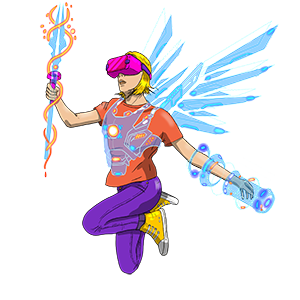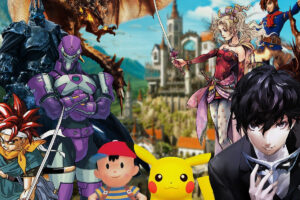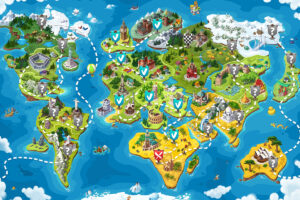In the vast universe of game development, where artistry meets technology, translators have historically stood as uncelebrated architects of immersive gaming experiences. Their work ensures that stories, mechanics, and emotions resonate across cultures and languages, yet their contributions often remain invisible. This is where the #TranslatorsInTheCredits movement steps in, which advocates for translators to receive the recognition they so deserve within the gaming sector.
As this industry evolves, recurring conversations among developers, publishers, and localization service providers reveal a growing acknowledgment of the importance of crediting translators. This shift is not only uplifting these essential contributors; it’s also transforming how the industry perceives localization as a vital art form. It’s a change that we enthusiastically support.
The #TranslatorsInTheCredits Movement: A Journey Towards Recognition
Historically, translators were typically left out of game credits, which left their efforts invisible to the gaming community—and potential employers. In other words, this oversight marginalized their expertise and limited their opportunities to showcase their work in CVs and portfolios.
The #TranslatorsInTheCredits movement emerged as a rallying cry for fairness as it began urging the gaming industry to credit translators alongside developers, artists, and writers. In recent years, the movement has gained traction with many localization professionals and organizations, including the Localization SIG of the International Game Developers Association (IGDA) and the Audiovisual Translation Division of the American Translators Association (ATA). As the movement leads the charge to transform recognition for translators into an industry standard, their efforts are starting to pay off in notable ways.

At Terra, we’re thrilled by this progress, and eager for more. After all, as translator and social media manager Kemel Cobresle puts it, “Localization is not just a step in a game development pipeline; it’s an art that bridges worlds.” Translators deserve recognition not just for their linguistic skills, but also for their creative contributions, which play a pivotal role in shaping the gaming experience for global audiences.
Conversations That Spark Change

Our ongoing discussions with existing and prospective gaming clients often reveal their genuine interest in understanding the #TranslatorsInTheCredits movement, from indie developers like Weird Johnny, the creators of Hero Tale, to bigger publishing firms. One standout example of a publisher that supports crediting their translators is Midwest Games, distributors of The Lullaby of Life, Dark Sky, and other hits. Their collaboration with the translation teams has been a beacon of inclusivity from the very start, as Midwest requests contributing linguists’ names at the outset to feature them in the credits.
Milestone, developer of Monster Jam Showdown, further exemplified this trend not only by crediting the entire localization team involved with the game, but also by including them in the development process at an early stage to ensure the game reached players worldwide from the get-go with its cultural and linguistic nuances intact.
These examples reveal how thoughtful crediting is a recognition of the trust and collaboration that is poured into the game development process—not only by the developers, but by the game’s translators, all working together as a single team.
Our Commitment to Translator Recognition

Terra’s former business development manager Lara Lapier is an especially strong advocate of translator recognition. “Crediting translators is about more than just acknowledgment; it’s about making their creativity, skill, and dedication visible,” she says. “It ensures their contributions are recognized and valued in every project.”
In other words, crediting translators is not just a symbolic gesture; it’s a commitment to fostering transparency and cooperation. At Terra, we take this commitment seriously, taking all the necessary steps to ensure that linguists are credited whenever possible. After all, translators play an integral role in shaping localization for the gaming industry, and beyond. Our dedication to advocacy for translators underscores our belief that crediting not only validates individual contributions, but also enhances the industry’s collaborative spirit.
Why Recognition Matters
Acknowledging translators in gaming credits is a step towards elevating localization within the industry. It transforms localization from a behind-the-scenes task into an art form that’s worth celebrating. And the benefits of recognition extend further than you might think.
- For translators, to be credited is to be made visible. Public acknowledgment of their work enhances their professional portfolios and can open doors to new opportunities.
- For publishers and developers, showcasing the contributions of their translators boosts their own credibility and demonstrates their commitment to collaboration and quality.
- For players, translator recognition encourages a deeper appreciation for the intricate work that goes into creating inclusive, immersive gaming experiences.

Acknowledgment is also motivational, as Terra business development manager Alexis Biro points out. “Giving credit to the localization team strengthens the industry and motivates all the linguistic team behind a project to continue creating the magic that makes games resonate globally.”
The Takeaway
The journey to universal translator recognition is far from over, but progress is undeniable. The #TranslatorsInTheCredits movement has set the stage for a more inclusive gaming industry, in which every contributor’s role is celebrated.
As the gaming world continues to grow, developers, publishers, and localization service providers must join forces to uphold this standard, to ensure that localization is recognized as the vital art form it truly is.



